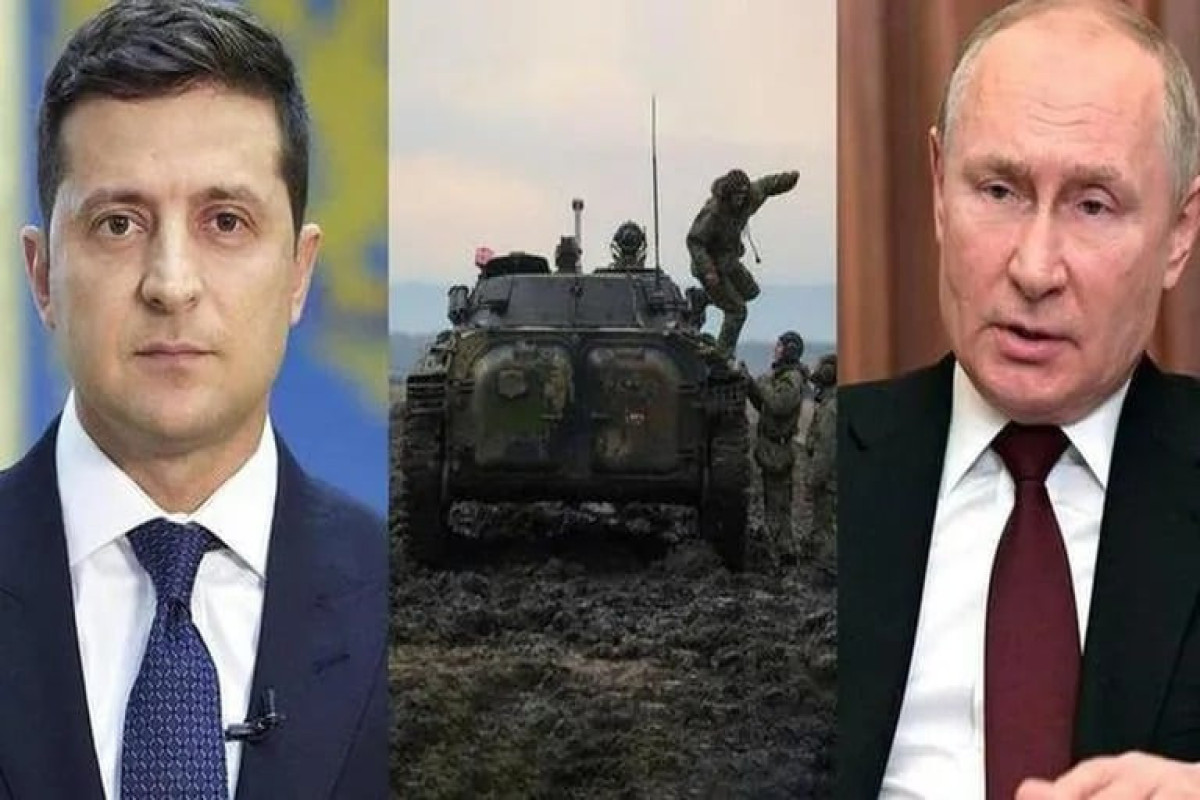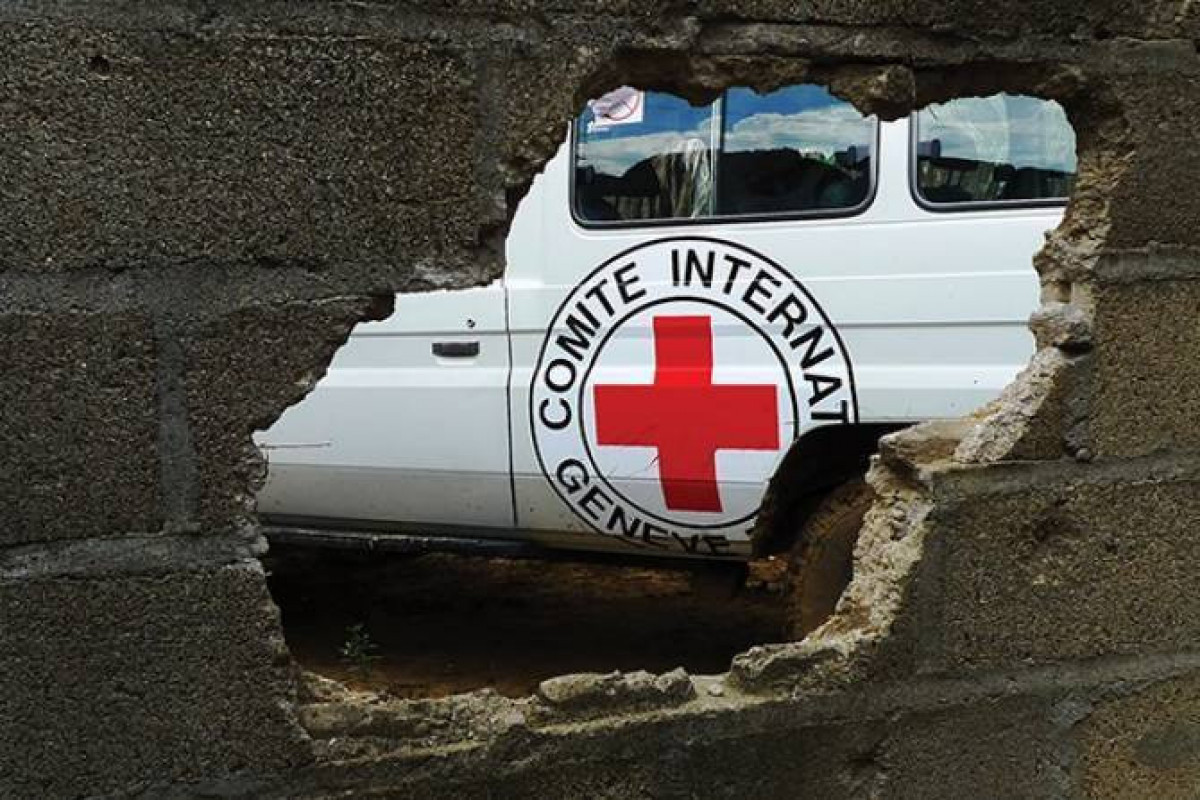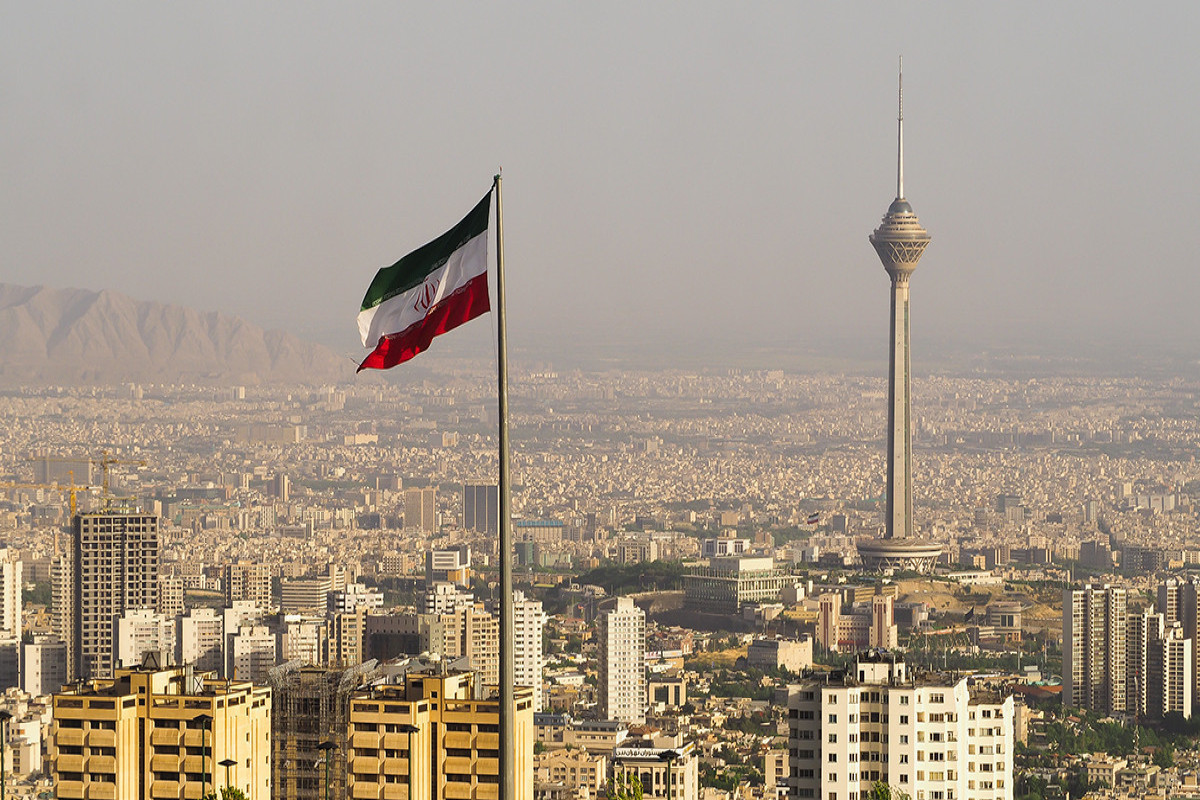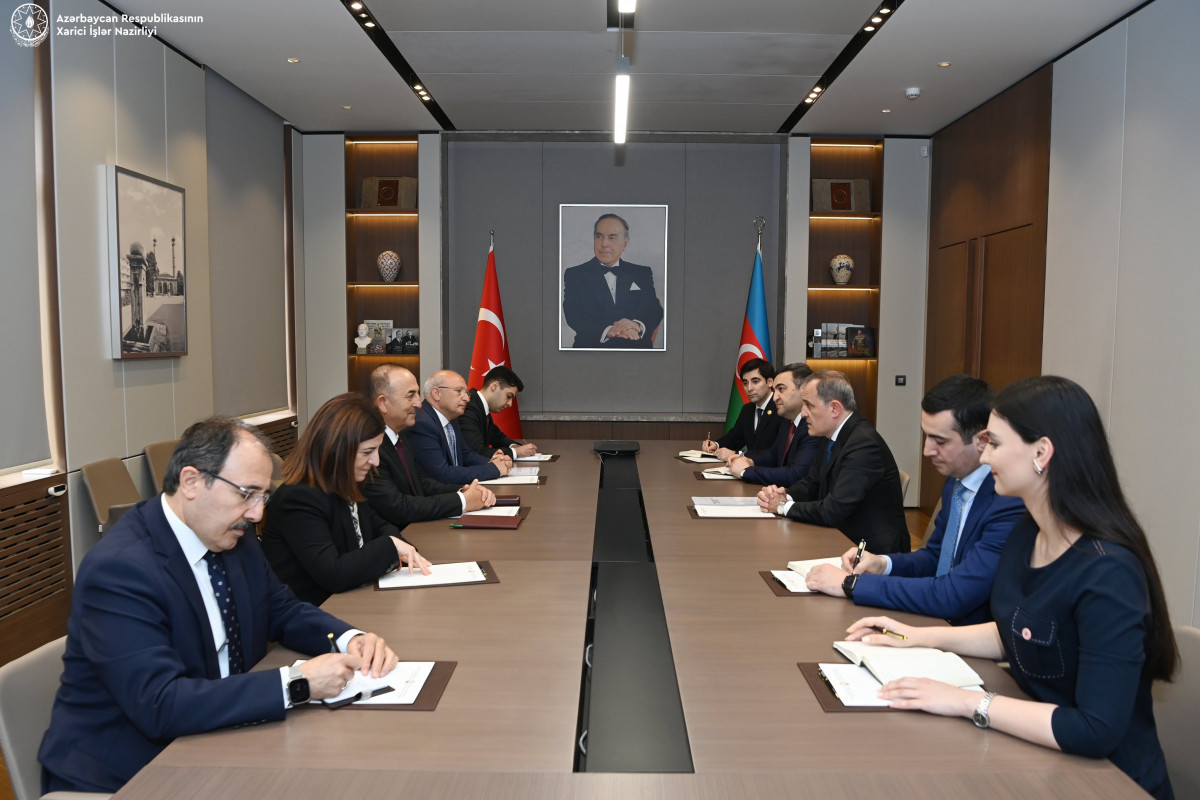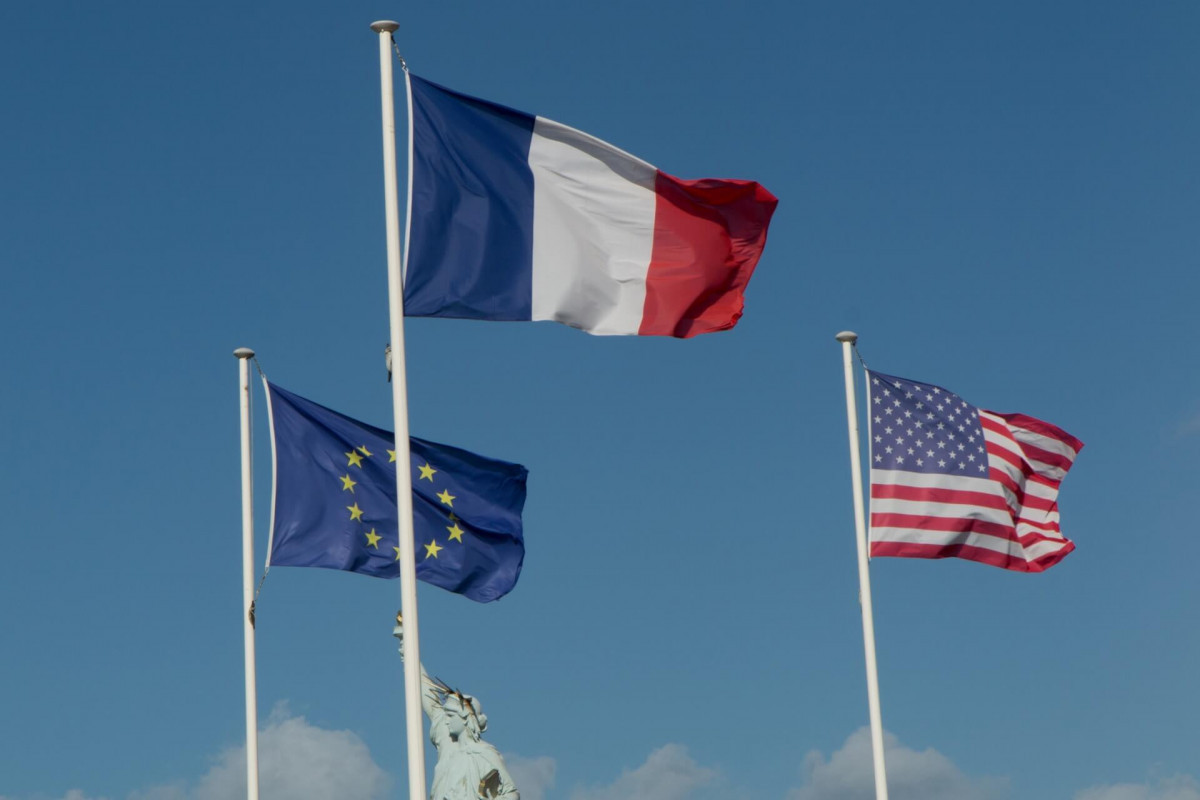On February 24, 2022, Russian-Ukrainian tensions switched to an open military phase from a military-diplomatic phase. In an address to the nation, Russian President Vladimir Putin announced he had launched a "special operation" in Ukraine and instructed the army in this regard. The Kremlin leader based some plans on military intervention such as the persecution of the Russian-speaking population in Ukraine, the shelling of the DPR and LPR (Donetsk People's Republic and Luhansk People's Republic) established in 2014, the rule of the Kyiv government by nationalist-minded people, and Ukraine's intention to become NATO member, to deploy offensive weapons in the country that could threaten Russia's national security. Russia announced the denationalization and demilitarization of Ukraine as one of its top priorities. As a result, Russia began to attack Ukraine with a 200,000-strong military contingent that it had amassed on the Ukrainian border, as predicted by Western intelligence.
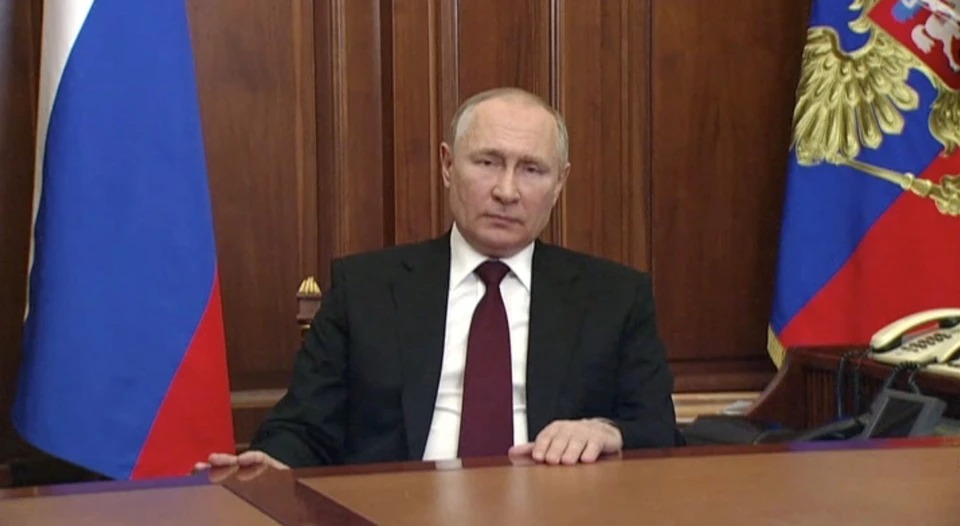
The first two weeks of the war were marked by the serious success of the Russian Army. Advancing in four directions (Kyiv, Kharkiv-Chernihiv, Donetsk-Luhansk, and South), the Russian Army captured the surrounding villages and settlements up to 20 kilometers from the capital Kyiv, and captured Kherson, which is the regional center of the south, and besieged large administrative and industrial centers such as Mariupol, Kharkiv, Chernihiv, Sumy. On February 26, US intelligence predicted that Russian troops would seize Kyiv in the next 96 hours, and Britain sent a proposal to Ukrainian President Vladimir Zelensky for political asylum. Analytical centers and military experts also expected that the Ukrainian Army, which was technically behind Russia, would soon be defeated. However, contrary to forecasts, the Ukrainian command, recovering from the shock of the first blow, set up an effective defense system and carried out successful counter-attacks and sabotage operations, using the Russian Army's communication and logistics lines, inadequate protection of armored vehicles, unfavorable weather conditions and tactical mistakes.
Owing to the coordinated communication between the various types of Ukrainian troops, the accuracy of the artillery, and the nationwide support, starting March 10, the army has managed to stop the advancing of the Russian troops in all directions except the Donbas region of Russia. When the attempt to blockade Kyiv by closing the Kyiv-Zhytomyr road and crossing the Irpen River failed, the Russian command gave up its plan to seize Kyiv and retreated to Belarus. In parallel, the army was withdrawn from Chernihiv and Sumy regions. The incident in late March was seen as Ukraine's greatest military-tactical success and an acknowledgment by Russia of its inability to carry out its military plans in the north. Although Moscow has acknowledged that its new priority is to take full control of the Donbas region, no significant progress has been made in the Donetsk-Luhansk direction, except for local success. In the ongoing war, Russia has not only failed to gain a strategic advantage over the Ukrainian Army, but also failed to implement minimal plans such as the siege of the Donbas group, access to the Sloviansk-Kramatorsk agglomeration, full control of the large metallurgical center, and the port city of Mariupol, and complete destruction of Ukrainian aviation and air defense systems.
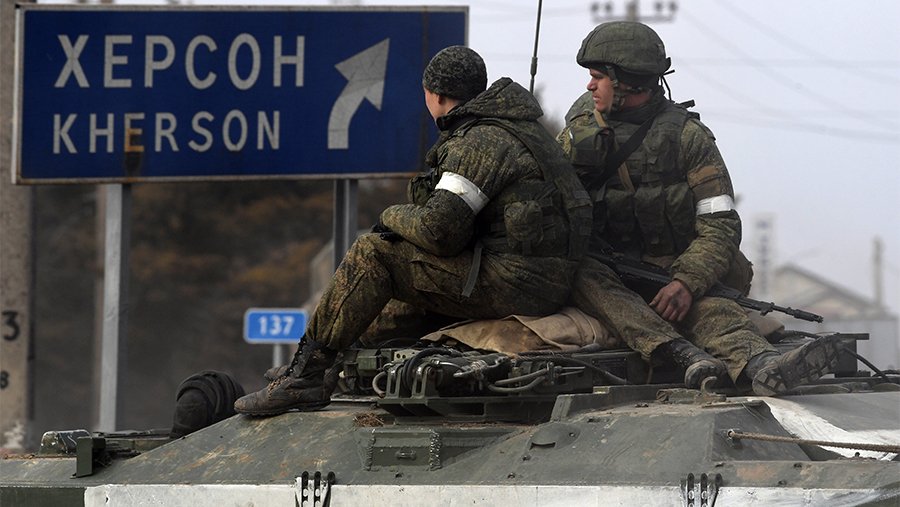
As a result, in the first days of the war, the most pessimistic predictions that Russia would experience the hard, long, and unsuccessful war as the USSR in Afghanistan and the United States in Vietnam came true.
The current military-political situation shows that the end of the war is unrealistic. Russia's attempt to blitzkrieg, meaning “lightning war”, which it calls a special operation, has led it to a state of zugzwang.
West's fear of Russia that failed in Ukraine
It is no coincidence that in the Russian-Ukrainian war, the West, which saw that the military machine of Russia was not as terrible and irresistible as imagined, began making such statements that the Russian-Ukrainian war would drag on, that Russia's blitzkrieg plan failed and became in a state of zugzwang.
During a hearing at the Congressional Armed Services Committee on April 6, the chairman of the Joint Chiefs of Staff, General Mark Milley, said the Russia-Ukraine war would last for years.
British Prime Minister Boris Johnson, French Foreign Minister Jean-Yves Le Drian and US Secretary of State Anthony Blinken went further and expressed hope that Ukraine would win the war.
On the other hand, NATO, constantly concerned about the security of its eastern borders and Russia's attack on the Baltic states and Poland, has ignored Kyiv's calls for the establishment of drone no-fly zones in the Ukraine drone strike in Ukraine and the deployment of manpower.
High-ranking NATO and European Union officials have repeatedly stated that such steps could lead to a third world war and that they are trying to avoid a direct military confrontation with Russia.
The West's fear of nuclear war is understandable. One of the main factors making Russia a world power is the fact that it has 6,375 nuclear warheads. And it should be noted that no country has the ability to protect itself from Russia's nuclear system.
The total number of nuclear warheads in NATO countries is 6,305 (US 5,800, Great Britain 215, France 290). Although NATO's total military potential is many times greater than Russia's, the risk of a nuclear war prevents a potential conflict and has a calming effect on both sides due to the terrible damage it will inflict. NATO countries and allies are giving the green light to Ukraine to provide military and technical assistance, provide intelligence and turn on the "green light" for its citizens to fight in Ukraine on a voluntary basis. In this context, we must say that not only the national unity and the right strategy chosen by the military leadership, but also the financial assistance, weapons, and equipment provided by the West have significantly helped Ukraine to withstand Russia's military pressure.
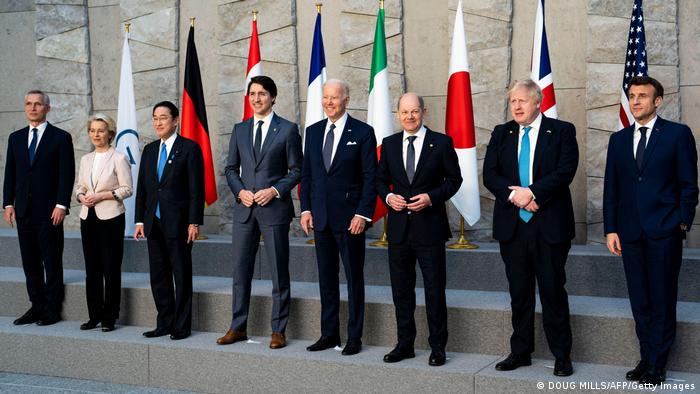
Suffice it to say that since the beginning of Russia's military intervention in Ukraine, the United States has provided $ 1.7 billion in military assistance, including Javelin anti-tank missiles, Stinger missiles, Switchblade drones, and snipers. rifles, armor, medical equipment, helmets, radar systems, night vision devices, optical devices, satellite imagery, secure communications, artillery, aviation surveillance radars, etc. allocated aid. Along with the assistance provided by NATO allies, this military-technical support has given the Ukrainian Army a significant advantage.
Western sanctions against Russia over Ukraine: The magnitudes of both forces are equal
The European Union, the United States, and the United Kingdom began to show a united position before the Russian-Ukrainian war entered the military phase. Western intelligence said that from the end of 2021, Russia had deployed a large number of troops and equipment to attack the Ukrainian border and was waiting for an order to attack. Although the dates of the start of hostilities were different, there was no doubt in the main Western think tanks that the attack would take place.
These days when the smell of gunpowder is becoming more acute, European leaders have begun to take preventive measures, increase diplomatic efforts and coordinate their activities.
French leader Emmanuel Macron, German Chancellor Olaf Scholz's failed visits to Moscow, a meeting between US Secretary of State Anthony Blinken and EU High Representative Joseph Borrell on December 22, 2021, amid fruitless telephone conversations between British Prime Minister Boris Johnson and Putin, agreed that the two sides would coordinate in the event of possible Russian military intervention in Ukraine.
The European Union, the United States, and the United Kingdom, which have provided millions of dollars in humanitarian and military aid to Ukraine since February 24, have begun to use the harshest rhetoric against Russia since the end of the Cold War. It should be noted that since the beginning of the war, the world community has imposed 5,398 sanctions on Russia with 5,398 different restrictions and bans. If we add the 2,754 sanctions imposed on Crimea and the Donbas in 2014, Russia is currently the most restricted country in the world with 8,152 sanctions. A total of 3,616 sanctions were imposed on Iran, which is in second place.
The sanctions include the closure of airspace for Russian aircraft, the removal of a number of banks from the SWIFT system, the seizure of property and bank accounts of Russian oligarchs, restrictions on the purchase of oil, gas, and coal, and more. covers a wide range. It is true that, as stated in Newton's third law, Western sanctions-hit Russia as well as themselves. Thus, in Europe, there is a record increase in prices for natural gas, food, alcohol, and tobacco products, and the EU has recorded inflation for the last 25 years.
However, the European Commission's report on sanctions also noted that the EU is prepared for negative factors. It is said that the announced sanctions will inevitably have a negative impact on the economy. But it is a price paid to preserve democracy and peace. It is also an indication of Brussels' determination to face the challenges ahead.
Leaders of the anti-Putin coalition - Poland, Baltic countries ...
It is enough to say one fact alone that Russia is the EU’s fifth partner for trade volume, while Ukraine is 18th. Brussels especially has serious energy dependence on Russia. Thus, Europe pays 25% of its oil needs and 40% of its gas needs at the expense of Russia. In the light of these realities, there are serious disagreements regarding sanctions imposed on Russia in the European Union. There are disagreements between countries that have a serious dependence on Moscow’s energy resources, want diplomatic exchange channels to be open with Moscow, and the countries that are in favor of adopting the toughest decisions. Poland and the Baltic states, which once had a socialist system, lead the anti-Russian coalition within the EU. They demand taking the toughest measures against Russia- Russia’s trade blockade, a ban on entry of Russian ships to European ports, suspension of oil, gas, etc. imports from this country. It is not a coincidence that Ukrainian Foreign Minister Dmytro Kuleba, who paid a visit to Warsaw on April 1, said that Poland was ahead of countries in the EU that were imposing economic pressure measures on Russia. However, Poland and Baltic countries’ radical sanction desire, is met with caution by the leaderships of the EU’s three giants- Germany, France, and Italy. These countries are against applying all means of the sanctions arsenal against Russia and burning diplomatic bridges. Namely, for this reason, Polish Prime Minister Mateusz Jakub Morawiecki has accused Germany at the press conference. “The situation in the European Union is very clear. The main obstacle is big countries that are afraid of their own business, and the consequences of the sanctions. Germany is the biggest obstacle in taking resolute steps,” he said.
At the same time, the French leader supporting to impose of new sanctions reminded us that the establishment of Europe’s security system will be impossible without Russia.
However, after Russian forces abandoned Bucha city, in the vicinity of Kyiv, the reveal of numerous human corpses in that area, led to an explosion of information bombs in the media.
Namely, in the light of this dissatisfaction, European Union adopted the 5th sanction package against Russia on April 8. The sanction package which is tougher than the previous ones and bans the export of high technology products to Russia, import of traditional Russian products to the EU, an embargo put on the purchase of coal from Russia, the entrance of ships from this country to the EU ports, the sanction is applied to Rusia’s 4 more banks. The sanctions are aimed primarily at eliminating the European Union's long-standing dependence on Russia for raw materials, especially energy, and for the Kremlin to lose its economic pressure tools.
Ukraine’s allies: the US and Great Britain
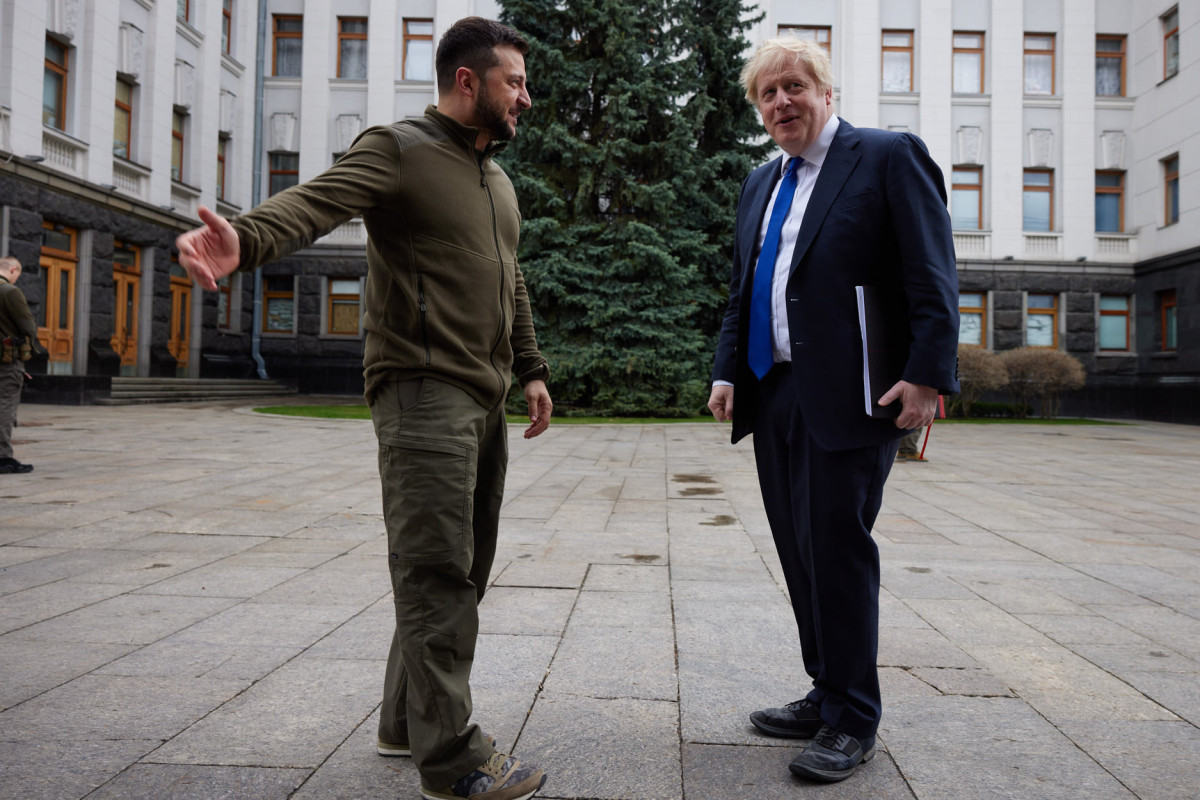
The US which has irreconcilable contradictions with Russia and Great Britain which historically has cold relations with Kremlin is among the countries which demonstrate an important and irreconcilable position against Moscow in sanction policy.
Washington and London which understand very well that an attack against Ukraine will lead to the collapse of global security systems in Europe and world, show themselves as supporters of the toughest measures.
Jo Biden's administration approved 1 752 sanctions and restrictions against Russia so far. The British government led by Boris Johnson has differed 1 123 times in this direction. From the first days of the war, the White House and Downing Street statements which said Russia and Putin government would pay the heaviest price was shown that statements are not just words.
During a traditional briefing on April 5, White House spokesman Jen Psaki outlined the nature of US economic sanctions against Russia: “Russia does not have endless resources in the light of sanctions. Therefore they will have to make a choice between depletion of dollar reserves in reserves or default.”
However, the West, along with sanctions, also supports Ukraine on the battlefield. We provided information about military assistance allocated by the US to Ukraine at the front of the article. It should be noted that Great Britain does not remain behind its great ally. London allocated financial and humanitarian aid amounted to 400 mln. pound sterling to Ukraine so far. On March 24, a decision on the allocation of additional 6 thousand missiles, and aid amounted to 25 mln. pounds sterling to Ukraine was also adopted.
The Times reported that Boris Johnson wanted to provide Ukraine with more deadly weapons, including AS-90 Vickers self-propelled artillery, capable of destroying targets at long distances, as well as air defense systems.
One of the main military support of London to Ukraine was sending more than 4 thousand NLAW ”anti-tank missile systems.
The words that best express London's attitude towards Moscow belong to the British Minister of Foreign Affairs Liz Truss. On February 24, on the first day of the war, she exhibited the approach of her country.
“Britain will not find peace till the collapse of the Russian economy,” she said.
In the Russia-Ukraine war context, the West’s military aid and diplomatic support methods mentioned above push to carry out parallels with the war in Afghanistan.
During the military conflict, in December of 1979, the military invasion of the Soviet Union to Afghanistan faced the solidarity of the West.
The United States provided USD 20 bln aid to the armed groups in Afghanistan consisting of weapons assistance, combat training, and financial support with the “Tsiklon” program against its ideological and geopolitical rival USSR.
That support has played the main role in turning the military invasion into a lasting and endless partisan war and in the withdrawal of the USSR from the country in the end.
On this base, thoughts are voiced that the US will benefit from sanctions against Russia.
The accusation is related to the fact that the United States has weaker trade ties with Russia than the European Union and will therefore feel less of a problem, and on the other side, and filling the gap in the European market by the US companies with the shale gas due to Russia's refusal from the supply energy.
It is no coincidence that Russian President Vladimir Putin has blamed the US in its plans to benefit from the global instability while delivering a speech on March 31.
“As it is being in the First and Second World war, the US will try to benefit from the global instability. Although global funds have fallen, US military-industrial companies have risen,” said Putin.
On this basis, on April 6, a statement by the Chinese foreign minister Zhao Lijian was a sign of the common approach of Moscow and Pekin against the US.
“With the beginning of the special operations in Donbass, the US strengthens the bilateral sanctions against Russia and urges the world’s countries to choose side.
Sanctions brought refugee flows, capital flight, and energy shortages to Europe. "Sanctions have allowed the United States to benefit from the chaos," the statement said.
Kremlin spokesman Dmitry Peskov also openly accused the Anglo-Saxons of harming Russia and Europe. I think we Europeans need to think about this. The situation is unlikely to improve unless we Europeans understand that a country outside the continent is hurting Europe.
Consequences of the Russian-Ukrainian war for the world: famine, rising prices, political instability
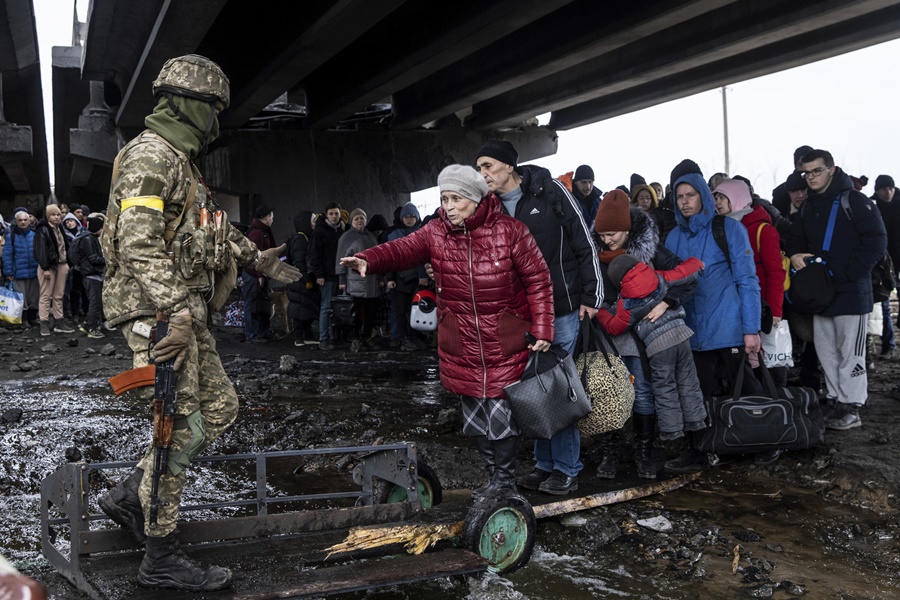
In addition to human tragedy and humanitarian crisis, Russia's attack on Ukraine will result in a slowdown in the world economy and accelerating inflation. When approaching the Russian-Ukrainian war from an economic point of view, it should be noted that both countries are major sources of raw materials. Russia and Ukraine together account for 30% of the world's grain consumption, and Russia is also a major producer of oil and natural gas. The war will pose a serious threat to the world's food and energy security, resulting in lower inflation and reduced purchasing power. The facts presented by UN Secretary-General Antonio Guterres alone are enough to imagine the impact of the conflict on food prices. Guterres said that over the past month, world grain prices have risen by 22%, corn by 21% and barley by 31%. He also reminded that oil prices for April 1 have risen by more than 60% compared to the same period last year, and natural gas and fertilizer prices have doubled over the past month. In total, the United Nations says 74 developing countries, home to a total of 1.2 billion people, have been hit by rising food, energy, and fertilizer prices. But this is not the end of economic threats to the world. Countries with close economic and trade ties with Russia and Ukraine, especially neighboring countries, will face additional pressures in the financial, tourism, and trade spheres. Rising food and fuel prices could be a direct cause of social tensions, political instability and famine in Africa, South America, the Caucasus, Central Asia, and the Middle East.


